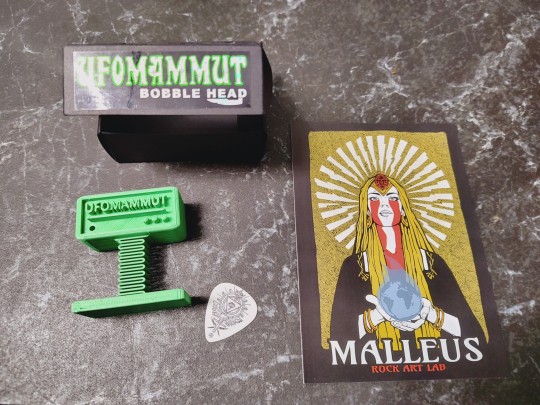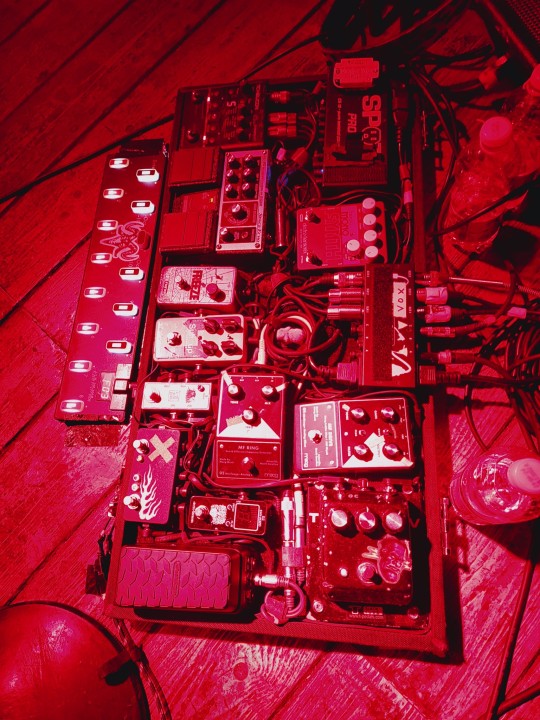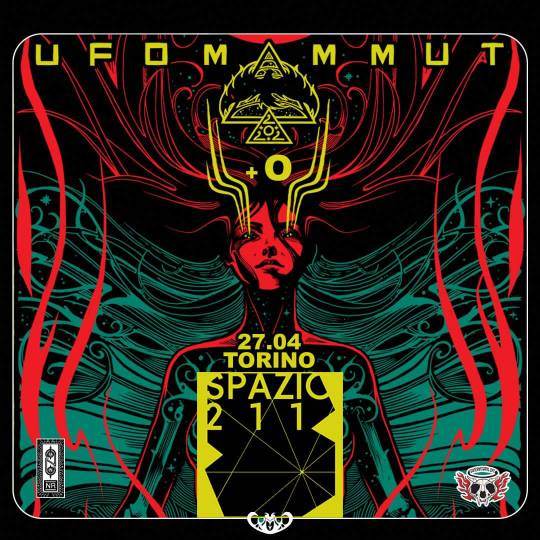#Torino Metal
Text
atla au where everyone thinks the next avatar is either bakugou, shouto or mirio but its actually mr midoriya “nonbender” izuku
#togata mirio#midoriya izuku#todoroki shouto#bakugou katsuki#i think it would make bakugou even more insane than in canon#todoroki doesnt actually care#mirio doesnt even know he’s a candidate but the entire faculty is rooting for him so#also!!! airbender!izuku#him and katsuki grew up in the fire nation together than moved to republic city to study at ua#comission = white lotus#airbender uraraka tenya hawks and lady nagart btw#lava bender todoroki???#ashido who can turn water rlly hot instead of freezing it#chi blocker aizawa!! bloodbender shinsou!!!#izuku stays with gran torino while in republic city(hes the only one who knows who the REAL avatar is)#this implies that all 4 of them have the same bday btw#hilarious#bnha#mha#boku no hero academia#my hero academia#metal bender aizawa. btw.#inko is air nation and izuku’s dad is fire nation!!!!!!!#izuku unlocks his airbending at the worst possible moment (15 yrs late in the process of saving bakugou)
22 notes
·
View notes
Text
Che bèeèello! Per favore mi disegni una pecora?
Questa è la pecora che ho realizzato per la call Chebèeèello! Per favore mi disegni una pecora? promossa da Imperfect e GAM Torino allo scopo di dar vita a un’installazione collettiva che radunerà un enorme gregge di pecore tutte diverse e bellissime…
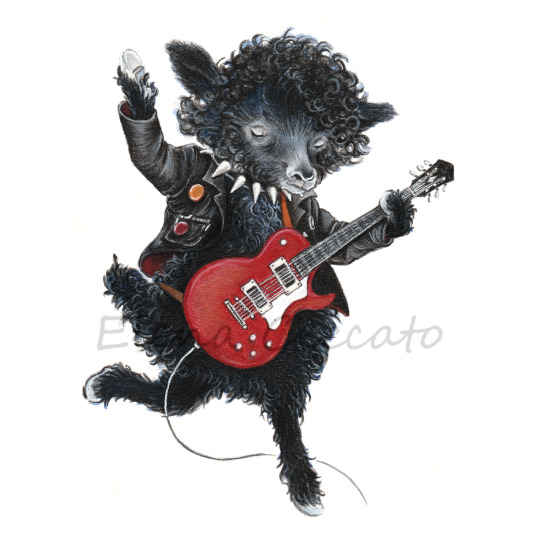
Il 4 dicembre tutte le pecore di cui l’installazione è composta verranno battute all’asta. Il ricavato verrà donato a Mosaico Refugees…
View On WordPress
#Chebèeèello#contest#eventi#exhibition#GAM Torino#illustrazione#Imperfect#pecora#Black (Metal) Sheep#blackmetalsheep#sheep#chebeeeello
3 notes
·
View notes
Text
Podcasting “Capitalists Hate Capitalism”
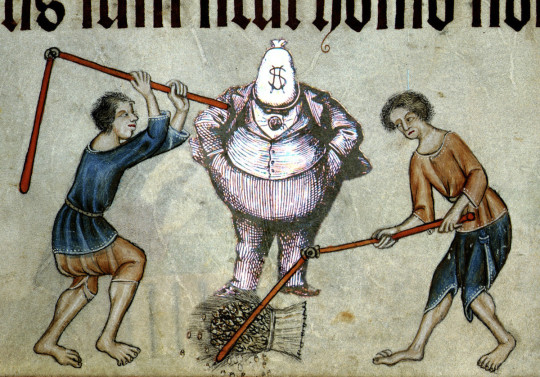
I'm touring my new, nationally bestselling novel The Bezzle! Catch me in Torino (Apr 21) Marin County (Apr 27), Winnipeg (May 2), Calgary (May 3), Vancouver (May 4), and beyond!

This week on my podcast, I read "Capitalists Hate Capitalism," my latest column for Locus Magazine:
https://locusmag.com/2024/03/cory-doctorow-capitalists-hate-capitalism/
What do I mean by "capitalists hate capitalism?" It all comes down to the difference between "profits" and "rents." A capitalist takes capital (money, or the things you can buy with it) and combines it with employees' labor, and generates profits (the capitalist's share) and wages (the workers' share).
Rents, meanwhile, come from owning an asset that capitalists need to generate profits. For example, a landlord who rents a storefront to a coffee shop extracts rent from the capitalist who owns the coffee shop. Meanwhile, the capitalist who owns the cafe extracts profits from the baristas' labor.
Capitalists' founding philosophers like Adam Smith hated rents. Worse: rents were the most important source of income at the time of capitalism's founding. Feudal lords owned great swathes of land, and there were armies of serfs who were bound to that land – it was illegal for them to leave it. The serfs owed rent to lords, and so they worked the land in order grow crops and raise livestock that they handed over the to lord as rent for the land they weren't allowed to leave.
Capitalists, meanwhile, wanted to turn that land into grazing territory for sheep as a source of wool for the "dark, Satanic mills" of the industrial revolution. They wanted the serfs to be kicked off their land so that they would become "free labor" that could be hired to work in those factories.
For the founders of capitalism, a "free market" wasn't free from regulation, it was free from rents, and "free labor" came from workers who were free to leave the estates where they were born – but also free to starve unless they took a job with the capitalists.
For capitalism's philosophers, free markets and free labor weren't just a source of profits, they were also a source of virtue. Capitalists – unlike lords – had to worry about competition from one another. They had to make better goods at lower prices, lest their customers take their business elsewhere; and they had to offer higher pay and better conditions, lest their "free labor" take a job elsewhere.
This means that capitalists are haunted by the fear of losing everything, and that fear acts as a goad, driving them to find ways to make everything better for everyone: better, cheaper products that benefit shoppers; and better-paid, safer jobs that benefit workers. For Smith, capitalism is alchemy, a philosopher's stone that transforms the base metal of greed into the gold of public spiritedness.
By contrast, rentiers are insulated from competition. Their workers are bound to the land, and must toil to pay the rent no matter whether they are treated well or abused. The rent rolls in reliably, without the lord having to invest in new, better ways to bring in the harvest. It's a good life (for the lord).
Think of that coffee-shop again: if a better cafe opens across the street, the owner can lose it all, as their customers and workers switch allegiance. But for the landlord, the failure of his capitalist tenant is a feature, not a bug. Once the cafe goes bust, the landlord gets a newly vacant storefront on the same block as the hot new coffee shop that can be rented out at even higher rates to another capitalist who tries his luck.
The industrial revolution wasn't just the triumph of automation over craft processes, nor the triumph of factory owners over weavers. It was also the triumph of profits over rents. The transformation of hereditary estates worked by serfs into part of the supply chain for textile mills was attended by – and contributed to – the political ascendancy of capitalists over rentiers.
Now, obviously, capitalism didn't end rents – just as feudalism didn't require the total absence of profits. Under feudalism, capitalists still extracted profits from capital and labor; and under capitalism, rentiers still extracted rents from assets that capitalists and workers paid them to use.
The difference comes in the way that conflicts between profits and rents were resolved. Feudalism is a system where rents triumph over profits, and capitalism is a system where profits triumph over rents.
It's conflict that tells you what really matters. You love your family, but they drive you crazy. If you side with your family over your friends – even when your friends might be right and your family's probably wrong – then you value your family more than your friends. That doesn't mean you don't value your friends – it means that you value them less than your family.
Conflict is a reliable way to know whether or not you're a leftist. As Steven Brust says, the way to distinguish a leftist is to ask "What's more important, human rights, or property rights?" If you answer "Property rights are human right," you're not a leftist. Leftists don't necessarily oppose all property rights – they just think they're less important than human rights.
Think of conflicts between property rights and human rights: the grocer who deliberately renders leftover food inedible before putting it in the dumpster to ensure that hungry people can't eat it, or the landlord who keeps an apartment empty while a homeless person freezes to death on its doorstep. You don't have to say "No one can own food or a home" to say, "in these cases, property rights are interfering with human rights, so they should be overridden." For leftists property rights can be a means to human rights (like revolutionary land reformers who give peasants title to the lands they work), but where property rights interfere with human rights, they are set aside.
In his 2023 book Technofeudalism, Yanis Varoufakis claims that capitalism has given way to a new feudalism – that capitalism was a transitional phase between feudalism…and feudalism:
https://pluralistic.net/2023/09/28/cloudalists/#cloud-capital
Varoufakis's point isn't that capitalists have gone extinct. Rather, it's that today, conflicts between capital and assets – between rents and profits – reliably end with a victory of rent over profit.
Think of Amazon: the "everything store" appears to be a vast bazaar, a flea-market whose stalls are all operated by independent capitalists who decide what to sell, how to price it, and then compete to tempt shoppers. In reality, though, the whole system is owned by a single feudalist, who extracts 51% from every dollar those merchants take in, and decides who can sell, and what they can sell, and at what price, and whether anyone can even see it:
https://pluralistic.net/2024/03/01/managerial-discretion/#junk-fees
Or consider the patent trolls of the Eastern District of Texas. These "companies" are invisible and produce nothing. They consist solely of a serviced mailbox in a dusty, uninhabited office-building, and an overbroad patent (say, a patent on "tapping on a screen with your finger") issued by the US Patent and Trademark Office. These companies extract hundreds of millions of dollars from Apple, Google, Samsung for violating these patents. In other words, the government steps in and takes vast profits generated through productive activity by companies that make phones, and turns that money over as rent paid to unproductive companies whose sole "product" is lawsuits. It's the triumph of rent over profit.
Capitalists hate capitalism. All capitalists would rather extract rents than profits, because rents are insulated from competition. The merchants who sell on Jeff Bezos's Amazon (or open a cafe in a landlord's storefront, or license a foolish smartphone patent) bear all the risk. The landlords – of Amazon, the storefront, or the patent – get paid whether or not that risk pays off.
This is why Google, Apple and Samsung also have vast digital estates that they rent out to capitalists – everything from app stores to patent portfolios. They would much rather be in the business of renting things out to capitalists than competing with capitalists.
Hence that famous Adam Smith quote: "People of the same trade seldom meet together, even for merriment and diversion, but the conversation ends in a conspiracy against the public, or in some contrivance to raise prices." This is literally what Google and Meta do:
https://en.wikipedia.org/wiki/Jedi_Blue
And it's what Apple and Google do:
https://www.theverge.com/2023/10/27/23934961/google-antitrust-trial-defaults-search-deal-26-3-billion
Why compete with one another when you can collude, like feudal lords with adjacent estates who trust one another to return any serf they catch trying to sneak away in the dead of night?
Because of course, it's not just "free markets" that have been captured by rents ("Competition is for losers" -P. Thiel) – it's also "free labor." For years, the largest tech and entertainment companies in America illegally colluded on a "no poach" agreement not to hire one-anothers' employees:
https://techcrunch.com/2015/09/03/apple-google-other-silicon-valley-tech-giants-ordered-to-pay-415m-in-no-poaching-suit/
These companies were bitter competitors – as were these sectors. Even as Big Content was lobbying for farcical copyright law expansions and vowing to capture Big Tech, all these companies on both sides were able to set aside their differences and collude to bind their free workers to their estates and end the "wasteful competition" to secure their labor.
Of course, this is even more pronounced at the bottom of the labor market, where noncompete "agreements" are the norm. The median American worker bound by a noncompete is a fast-food worker whose employer can wield the power of the state to prevent that worker from leaving behind the Wendy's cash-register to make $0.25/hour more at the McDonald's fry trap across the street:
https://pluralistic.net/2022/02/02/its-the-economy-stupid/#neofeudal
Employers defend this as necessary to secure their investment in training their workers and to ensure the integrity of their trade secrets. But why should their investments be protected? Capitalism is about risk, and the fear that accompanies risk – fear that drives capitalists to innovate, which creates the public benefit that is the moral justification for capitalism.
Capitalists hate capitalism. They don't want free labor – they want labor bound to the land. Capitalists benefit from free labor: if you have a better company, you can tempt away the best workers and cause your inferior rival to fail. But feudalists benefit from un-free labor, from tricks like "bondage fees" that force workers to pay in order to quit their jobs:
https://pluralistic.net/2023/04/21/bondage-fees/#doorman-building
Companies like Petsmart use "training repayment agreement provisions" (TRAPs) to keep low-waged workers from leaving for better employers. Petsmart says it costs $5,500 to train a pet-groomer, and if that worker is fired, laid off, or quits less than two years, they have to pay that amount to Petsmart:
https://pluralistic.net/2022/08/04/its-a-trap/#a-little-on-the-nose
Now, Petsmart is full of shit here. The "four-week training course" Petsmart claims is worth $5,500 actually only lasts for three weeks. What's more, the "training" consists of sweeping the floor and doing other low-level chores for three weeks, without pay.
But even if Petsmart were to give $5,500 worth of training to every pet-groomer, this would still be bullshit. Why should the worker bear the risk of Petsmart making a bad investment in their training? Under capitalism, risks justify rewards. Petsmart's argument for charging $50 to groom your dog and paying the groomer $15 for the job is that they took $35 worth of risk. But some of that risk is being borne by the worker – they're the ones footing the bill for the training.
For Petsmart – as for all feudalists – a worker (with all the attendant risks) can be turned into an asset, something that isn't subject to competition. Petsmart doesn't have to retain workers through superior pay and conditions – they can use the state's contract-enforcement mechanism instead.
Capitalists hate capitalism, but they love feudalism. Sure, they dress this up by claiming that governmental de-risking spurs investment: "Who would pay to train a pet-groomer if that worker could walk out the next day and shave dogs for some competing shop?"
But this is obvious nonsense. Think of Silicon Valley: high tech is the most "IP-intensive" of all industries, the sector that has had to compete most fiercely for skilled labor. And yet, Silicon Valley is in California, where noncompetes are illegal. Every single successful Silicon Valley company has thrived in an environment in which their skilled workers can walk out the door at any time and take a job with a rival company.
There's no indication that the risk of free labor prevents investment. Think of AI, the biggest investment bubble in human history. All the major AI companies are in jurisdictions where noncompetes are illegal. Anthropic – OpenAI's most serious competitor – was founded by a sister/brother team who quit senior roles at OpenAI and founded a direct competitor. No one can claim with a straight face that OpenAI is now unable to raise capital on favorable terms.
What's more, when OpenAI founder Sam Altman was forced out by his board, Microsoft offered to hire him – and 700 other OpenAI personnel – to found an OpenAI competitor. When Altman returned to the company, Microsoft invested more money in OpenAI, despite their intimate understanding that anyone could hire away the company's founder and all of its top technical staff at any time.
The idea that the departure of the Burger King trade secrets locked up in its workers' heads constitute more of a risk to the ability to operate a hamburger restaurant than the departure of the entire technical staff of OpenAI is obvious nonsense. Noncompetes aren't a way to make it possible to run a business – they're a way to make it easy to run a business, by eliminating competition and pushing the risk onto employees.
Because capitalists hate capitalism. And who can blame them? Who wouldn't prefer a life with less risk to one where you have to constantly look over your shoulder for competitors who've found a way to make a superior offer to your customers and workers?
This is why businesses are so excited about securing "IP" – that is, a government-backed right to control your workers, customers, competitors or critics:
https://locusmag.com/2020/09/cory-doctorow-ip/
The argument for every IP right expansion is the same: "Who would invest in creating something new without the assurance that someone else wouldn’t copy and improve on it and put them out of business?"
That was the argument raised five years ago, during the (mercifully brief) mania for genre writers seeking trademarks on common tropes. There was the romance writer who got a trademark on the word "cocky" in book titles:
https://www.theverge.com/2018/7/16/17566276/cockygate-amazon-kindle-unlimited-algorithm-self-published-romance-novel-cabal
And the fantasy writer who wanted a trademark on "dragon slayer" in fantasy novel titles:
https://memex.craphound.com/2018/06/14/son-of-cocky-a-writer-is-trying-to-trademark-dragon-slayer-for-fantasy-novels/
Who subsequently sought a trademark on any book cover featuring a person holding a weapon:
https://memex.craphound.com/2018/07/19/trademark-troll-who-claims-to-own-dragon-slayer-now-wants-exclusive-rights-to-book-covers-where-someone-is-holding-a-weapon/
For these would-be rentiers, the logic was the same: "Why would I write a book about a dragon-slayer if I could lose readers to someone else who writes a book about dragon-slayers?"
In these cases, the USPTO denied or rescinded its trademarks. Profits triumphed over rents. But increasingly, rents are triumphing over profits, and rent-extraction is celebrated as "smart business," while profits are for suckers, only slightly preferable to "wages" (the worst way to get paid under both capitalism and feudalism).
That's what's behind all the talk about "passive income" – that's just a euphemism for "rent." It's what Douglas Rushkoff is referring to in Survival of the Richest when he talks about the wealthy wanting to "go meta":
https://pluralistic.net/2022/09/13/collapse-porn/#collapse-porn
Don't drive a cab – go meta and buy a medallion. Don't buy a medallion, go meta and found Uber. Don't found Uber, go meta and invest in Uber. Don't invest in Uber, go meta and buy options on Uber stock. Don't buy Uber stock options, go meta and buy derivatives of options on Uber stock.
"Going meta" means distancing yourself from capitalism – from income derived from profits, from competition, from risk – and cozying up to feudalism.
Capitalists have always hated capitalism. The owners of the dark Satanic mills wanted peasants turned off the land and converted into "free labor" – but they also kidnapped Napoleonic war-orphans and indentured them to ten-year terms of service, which was all you could get out of a child's body before it was ruined for further work:
https://pluralistic.net/2023/09/26/enochs-hammer/#thats-fronkonsteen
When Varoufakis says we've entered a new feudal age, he doesn't mean that we've abolished capitalism. He means that – for the first time in centuries – when rents go to war against profits – the rents almost always emerge victorious.
Here's the podcast episode:
https://craphound.com/news/2024/04/14/capitalists-hate-capitalism/
Here's a direct link to the MP3 (hosting courtesy of the Internet Archive; they'll host your stuff for free, forever):
https://archive.org/download/Cory_Doctorow_Podcast_465/Cory_Doctorow_Podcast_465_-_Capitalists_Hate_Capitalism.mp3
And here's the RSS feed for my podcast:
http://feeds.feedburner.com/doctorow_podcast

If you'd like an essay-formatted version of this post to read or share, here's a link to it on pluralistic.net, my surveillance-free, ad-free, tracker-free blog:
https://pluralistic.net/2024/04/18/in-extremis-veritas/#the-winnah
1K notes
·
View notes
Text
#rammstein#musica#music#rock#hard rock#metal#heavy metal#industrial metal#germania#germany#trap#torino#isola#blog#personale#concerti
0 notes
Audio
#SoundCloud#music#pramatos#Heavy Metal#soundcloud#elektradrive#torino#hard rock#80s#secret of the holy grave#...over the space
0 notes
Text

The Sharing Association is pleased to announce the 16th edition of the Share Prize, the competition dedicated to contemporary art focusing on technology and science.
The artworks nominated for the prize must follow the theme:
'ALL-NATURAL'
curated by Share Festival artistic director Bruce Sterling and curator Jasmina Tešanović
The platform invites artists from all over the world to submit their works.
Call for entries open from 12 April 2024 to 9 June 2024
The six prize nominees will be announced in July 2024. The announcement will be published on our website: www.toshareproject.it
The winner will be announced during the Share Festival Opening,in Turin from 28 October to 3 November 2024 during the Turin Contemporary Art Week.
Link website:
Link Call:
Link form:
Prize Summary:
Winner gets 2500 euro prize
Event date:
April 12, 2024 to June 9, 2024
Location:
Torino
Deadline:
09/June/2024
"ALL-NATURAL"
Per la XVIII edizione di Share Festival vogliamo avanzare una proposta che sappiamo essere impossibile.
Qui nell'elegante Torino - città famosa per il suo caloroso sostegno verso ogni forma d'arte - non riusciamo a fare un respiro che non sia contaminato. Non è solo l'intera atmosfera del nostro pianeta a essere inquinata dai gas serra: a causa della sua eredità industriale e della sua peculiare situazione geografica, Torino si trova in una situazione particolarmente preoccupante per via dell'onnipresente foschia dovuta alle polveri sottili che includono metalli, prodotti della combustione e persino polveri agricole. Mentre voi leggete, noi stiamo respirando tutto questo.
Eppure, allo stesso tempo, la provincia piemontese è rinomata nel mondo per la sua dedizione all'artigianalità dello Slow Food, il cibo che nasce grazie alle varietà uniche di piante e animali presenti sul fertile suolo italiano.
Nel prossimo Festival vogliamo prendere di petto questa contraddizione e affrontarla attraverso il nostro mezzo d'elezione, l'arte tecnologica. Possiamo farla diventare un momento dialettico, invece che farla restare una mera contraddizione? Riusciremo a vedere della net-art plasmata sugli uccelli, gli insetti, le api e il paesaggio naturale e locale? Potremo interagire con robot fatti di legno, sculture digitali ricavate dal marmo e opere interattive composte da corni, canne, conchiglie, bambù, paglia, ossa, fossili o - ancor meglio - materiali naturali che rischiano di scomparire e interamente appartenenti alla regione da cui proviene l'artista?
"Difendere l'ambiente" non è sufficiente: questi materiali naturali saranno in grado di infiltrarsi nella sostanza innaturale del domani e prendersi la loro infestante, tremenda vendetta?
Fate del vostro meglio, per favore. Abbiamo bisogno di una boccata d'aria fresca!
Bruce Sterling, Direttore Artistico di Share Festival
Jasmina Tesanovic, Curatrice di Share Prize
For the XVIII edition of Share Festival, we make this demand because we know it's impossible.
Here in glamorous Torino -- a city known for its cordial support of "every form of art" -- we can't take one natural, untainted breath. Not only is the planet's whole atmosphere polluted with Greenhouse gases -- here in Torino, thanks to our industrial heritage and our specific geographic climate, we're particularly badly off from an all-pervasive haze of PM2.5 micrometer pollution particles, including metals, combustion products and even agricultural dust. As you read this, we breathe that.
And yet, at the very same time, our Italian province of Piedmont is world-famous for its devotion to hand-crafted, artisanal "Slow Foods" grown from the unique plant and animal varieties of the fruitful Italian soil.
In our forthcoming Festival, we plan to tackle this contradiction headlong -- through our favorite medium of technology art. Can this become a dialectic instead of a contradiction? Can we witness net.art that is all about birds, bugs, bees and natural local landscapes? Can we interact with robots made of natural woods, sculptures digitally carved from marble, and interactive artworks composed of horn, reeds, seashells, bamboo, straw, bones, fossils, or better yet, severely imperiled natural materials entirely unique to the artist's own region in the world?
It's not enough to "defend the environment" -- how can natural materials infiltrate tomorrow's unnatural substance and take some terrible, weedy revenge? Please do your best for us. We need a breath of fresh air!
Bruce Sterling, Direttore Artistico di Share Festival
Jasmina Tesanovic, Curatrice di Share Prize

56 notes
·
View notes
Text

1977 Pontiac Grand Prix
A complete reworking of the front header and bumper highlighted the 1977 Grand Prix, which was the final year for the 1973-vintage bodyshell that was set to be replaced by a downsized GP for 1978. The parking lamps were now positioned between the quad headlamps (same setup as a 1967 or 1968 Oldsmobile Cutlass), and the previous year's 'waterfall' grille was replaced by a narrower one that extended into the lower portion of the bumper. Behind the bumper were new reinforcements (mounting panels) made from aluminum rather than steel to reduce weight. In back the taillights were simplified to eliminate the weighty pot metal bezels that created the horizontal stripe effect in 1976. The same three models (J, LJ, and SJ) were carried over with engine revisions. The base Model J got Pontiac's new 135 hp (101 kW) 301 cu in (4.9 L) V8 as standard equipment, which was much too small and underpowered to propel a 4,000-pound car. Optional engines included a 160 hp (119 kW) 350 cu in (5.7 L) V8 or 180 hp (130 kW) 400 cu in (6.6 L); those two engines standard on the LJ and SJ models, respectively. The original thinking on the 301 CID engine was that the weight savings from using a significantly lighter engine would cancel out the horsepower loss from the smaller displacement. This turned out to be a major miscalculation and 301 equipped cars became much less desirable among Grand Prix enthusiasts and collectors in later years. The 301 also had a knocking (pre-ignition) problem that was later determined to be caused by the shape of the combustion chamber.
Each of those engines were Pontiac-built units as in previous years, but offered in 49 of the 50 states. Because Pontiac's own V8 engines could not meet the more stringent California emission standards set for 1977, all Grand Prixs (and other Pontiac models) sold in California were powered by Oldsmobile-built engines including Lansing's 350 cu in (5.7 L) "Rocket V8" for J and LJ, and the 403 cu in (6.6 L) Rocket V8 standard on the SJ and optional on the other two GPs in California. Due to a shortage of Olds 350 engines resulting from record sales of Cutlasses and reduced production of that engine due to a plant conversion to build a Diesel V8 beginning in 1978, a few 1977 Grand Prixs destined for California reportedly came off the line with a Chevrolet-built 350 cu in (5.7 L) V8.
Grand Prix sales increased to an all-time high of over 270,000 units for 1977, the last year for this bodystyle, despite competition from a newly downsized and lower-priced Ford Thunderbird introduced this year and a restyled Mercury Cougar XR-7 whose bodyshell switched to the T-Bird this year from the discontinued Ford Torino/Mercury Montego.
96 notes
·
View notes
Text
Giorgio Marincola
(Mahaddei Uen, 1923 - Stramentizzo, 1945)

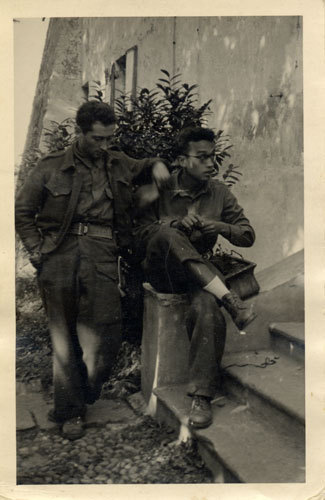
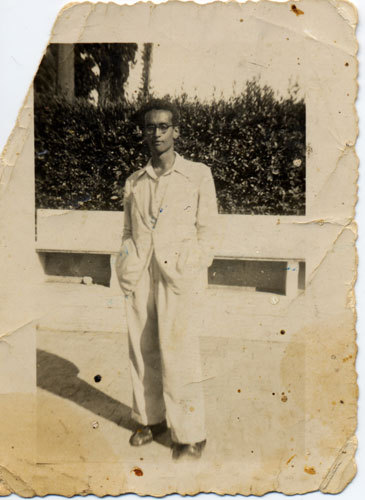
Born in Somalia to an Italian father, Giuseppe Marincola, and a Somali mother, Ashkiro Hassan, of the Somali subclan Habar Gidir. He had a sister, Isabella, and - contrary to the costume of the time - both were recognized by the father and brough back to Italy.
Giorgio grew up in Pizzo Calabro, with his aunt and uncle, and went to live in Rome with his father in 1933. He attended the Liceo Classico Umberto I and had as a history and philosophy professor Pilo Albertelli, who died in 1944 in the Fosse Ardeatine Massacre.
In 1941 he started studying to become a doctor.
In 1943, after the armistice, he joined the partisans of the PdA (Partito d'Azione, a socialist and center left party).
After the liberation of Rome in 1944 he joined the Special Operations Executive and left for Brindisi, where he adopted the battle name "Mercurio" and started military training.
In 1945 he was captured by the SS and imprisoned in Biella and then transfered to Villa Schneider, where the german military police had its headquarters.
He was forced to speak during a transmission of Radio Baita. The idea was to force him to denigrate the Resistance, but Giorgio instead exhalted and glorified it and the transmission was abruptly interrupted while the police beat him. Because of this he was transferred to Torino and then to the Bolzano transit Camp, one of the largest concentration camps on italian soil.
When the nazis abandoned the camp, Giorgio refused to leave for Switzerland and instead joined the partisans again in Val di Fiemme.
There he died in the last massacre commited by the nazis in Italy, the massacre of Stramentizzo, together with 44 other people, between civilians and partisans.
He was honored with the Gold Metal of Military Valor.
37 notes
·
View notes
Text
it's that time during my yearly mha obsession that I attempt to redesign the girls.
Uraraka's isn't horrible, I just think the astronaut theme could've been executed better. And the more I look at the heel boots the more they weird me out. Plus, her belt plus pink strip gives underwear vibes.

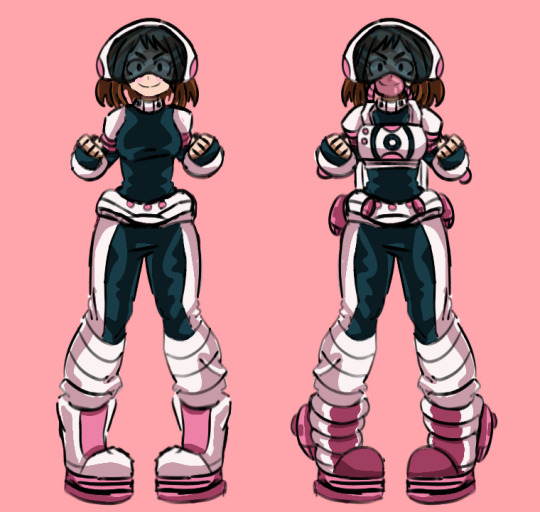
Loose pants, chonky space boots. That's all I wanted. This is like a first suit versus updated suit thing.

Momo's is the fucking worst of course. The cape she gets later on is the only good part of her suit. I'd be find with her having heels, but not three inches or whatever's going on here. Two max for being out in the field.
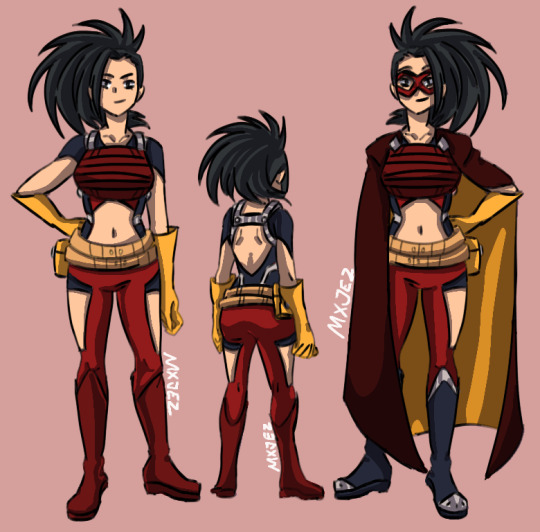
I meant to give her a bit more heel but forgot. Anyway, her thighs, stomach, and back are exposed since they're bigger areas of fat and parts of her arms are also exposed since I kind of imagine her pulling out stuff by reaching over as it's created. Again, a first suit next to a later update one. I gave her a mask later...I guess cause Midnight has one, idk.


The more I look at Mina's the less I dislike it. It's not bad, but once I saw that in the manga her pattern was meant to resemble poisonous frogs I got a bit disappointed in the first one again. Plus, for a hero named Pinky there's a lack of pink in her suit. I know SHE'S pink, but if you're gonna make it your name then put it in the suit!
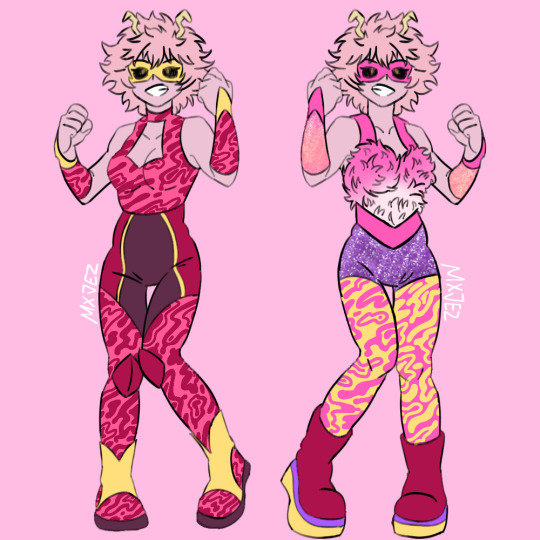
I'm not super happy with either of these, but I think I got my point across with the first one. Pink and poison pattern! The one on the right was just a fun experiment, maybe one of her dance outfits or something i dunno.

This isn't a redesign edit this is me trying to figure out how I want my fanfic quirkless midoriya to look. His hero suit is honestly really good and I couldn't think of what I wanted to change, so I just adjusted the mask to more clearly have a smile and gave him a knife. The second has Hatsume Mei's grappling gear so that he can sort of Spider-Man around, metal on his shoes for kicking, and a bit of jetpack power on his shoes so that he can cushion his landings, give his jumps a boost, and maybe move around similar to Gran Torino. I'm not sure if I'll keep the clunky hip grapples since he has them on his wrists, but I drew it just in case.
also I just drew ON TOP of their official designs since they're just meant to be quick idea sketches, so I'm not going to claim this as completely original art, but these are my edits so just keep that in mind.
#mha#mha redesign#mina ashido#ochako uraraka#momo yaoyorozu#izuku midoriya#my hero academia#mha fanart#quirkless midoriya izuku
35 notes
·
View notes
Text
Senza voce

Se non conosciamo il significato di una lingua rimaniamo magari colpiti dalla sua musicalità, ma la nostra superficiale comprensione non permette un dialogo e un arricchimento. Le immagini medievali si esprimevano con una loro lingua fatta anche di gesti in codice, di convenzioni architettoniche, di dettagli allusivi, di metafore, di simboli: se non li conosciamo, quelle immagini non hanno voce.
C. Frugoni, La voce delle immagini. Pillole iconografiche dal Medioevo, Torino, Einaudi, 2010.
Immagine: Il pellicano, particolare da una Croce da altare, metalli e smalti, inizio XIV secolo. Santa Vittoria in Matenano (Fermo), chiesa di Santa Vittoria. Dalla copertina del libro.
13 notes
·
View notes
Text
La squadra and what languages (other than italian ) i think they might speak:
Risotto ✂️: Greek 🇬🇷

Italy is very close to Greece, and i think Risotto participated to some summer camps with his church group ( his granny had some connections with the local diocese ) and so he spent 4/5 years of his childhood in the island of Corfù. He knows the basics of the language and can keep up with a conversation but if people start talking to fast his brain shuts down and start singing " Ciuri Ciuri " by Roy Paci.
Prosciutto 🍖: French 🇫🇷

Ok so with Prosciutto is a lil complicated; his mother was a piano teacher that traveled a lot in France for concerts and sometimes he hat to attend to ( or do his own recital) and being the son of two cold hearted perfectionists he was supposed to speak fluently the language at first try. At the age of 15 ( when he decided he had enough of his family and ran away to Napoli ) he decided to put his knowledge aside and speak only in italian or the sicilian dialect, cause his hate for the tongue was rooted so deep inside of him. Eventually Risotto found out about it and knows that if he needs someone to translate some documents in french,Prosciutto is the right man!
Melone 🍈: Chinese 🇨🇳

The city of Prato has one of the largest Chinese community in Italy and Melone, being the lil know it all he is, was more than happy to add this skill to his curriculum. He started when he was in university and of course the first thing he tried to do was flirt with the chinese students from the Erasmus program ( his pronounce was terrible at first and received so many slaps in the face ) but the more he practiced the more he actually started enjoying the complexity and history behind the language. Now he uses it when he has to do some hacker jobs or just finding weird sited for his " alone nights "....yes i know, this mann CAN'T be normal.
Illuso 🔎: German 🇩🇪

Illuso's father was born and raised in Dresden but during a lil trip in Torino, was mesmerized by the beauty of an italian brunette...3 months later he found himself living in a loveless marriage with her and their unborn baby. Now, he didn't love his wife but he truly loved his son and he did everything he could to teach young illuso about his german heritage: he spoke to him in german when his wife wasn't around, sang his childhood's lullabies to him, made illuso watch cartoons and read comic books in german...La Squadra's favourite narcissist may act all tough and brag about his high level skills with the language but truth is, he just remembers fondly those memories with his late father.
Ghiaccio 🧊: Finnish 🇫🇮

You just got your driving licence, you are an angry teen from Veneto and your first car is a green Panda 4x4 that you are using to run away from the police after your parents had " a lil accident ". What's the best thing you can do to let some steam out? Hide in the countryside of Emilia-Romagna, roll up a j*int and listen to Finnish heavy metal music. Ghiaccio had some really tough times before joining la Squadra, and had a lot of pent up anger to let out, so he found comfort in finnish music and while he screamed with their lead singers in a very akward imitation of their dialect he actually slowly started to learn that ancient and interesting tongue. Now he can proudly speaks a fluent Finnish and whenever he has occasion he spends time with Risotto, blasting music and doing some wild karaoke.
Formaggio 🧀: Spanish 🇪🇸
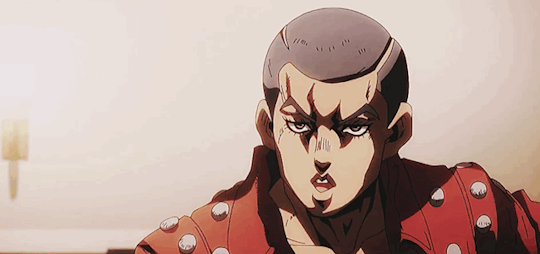
Ok cheese man here is the king of flirting, and what language yells sensuality all over the place ( in his mind at least ): spanish~ He spent MONTHS in Ostia Lido, trying to catch the secrets of the iberic latin lovers and how the get all the ladies during his adolescence and now with his arrogan-ehm confidence, roman charm and smooth talking like an italian Ricky Martin he literally has to peel girls from his body. No seriusly 2/3 times the rest of the team thought he wasn't going to get some that night but the moment he starts lowering his voice and speaking spanish, the girl is already swooning in his arms. Watch out this summer chicas~
#la squadra#jojo part 5#la squadra headcanons#jjba risotto#jjba prosciutto#jjba illuso#melone jjba#jjba formaggio#jjba ghiaccio#so sorry pesci fans#but i literally had no ideas with him#but now i want prosciutto to speak french to me#voulez vous coucher avec moi monsieur? 👀👀
64 notes
·
View notes
Text
15 people 15 questions
got tagged by @isaksbestpillow so now i get to spread this to toku tumblr lol
1. are you named after anyone?
my deadname was that of my mom's first student she got attached to (and my brother too, just the male one) and the current one isn't written that way and not used that way but i'd be lying if i didn't think of Taiga as a name because of Saejima "ya gotta go balls out" Taiga from the Yakuza games
2. when was the last time you cried?
uh yesterday? we watched Mebius Ghost Rebirth/Armored Darkness and is there anything more romantic than when two boys henshin together into one??? i think not. i got a lil misty eyed (if you want cry-cry it was two weeks ago watching the Mebius finale with the squad lol)
3. do you have kids?
hell no
4. what sports do you play/have you played?
I used to play basketball! mostly street basketball because I'm short and have no stamina but I was pretty decent
5. do you use sarcasm?
yeah.....i'm a chronic talk-backer.
6. what’s the first thing you notice about people?
what colors they wear i guess? i haven't really thought about it
7. what’s your eye color?
Gray!
8. scary movies or happy endings?
what about happy movies with scary endings? No but I'm a massive wimp i love scary movies but I get very stressed lmao. I'm also a big softie and i love happy endings although bittersweet endings stick to you longer
9. any talents?
pretty decent writer, great cook, amazing at cutting my own hair
10. where were you born?
Torino, Italy
11. what are your hobbies
crafting, diy, video games, looking for and collecting old doujinshi, i used to go to metal shows and run but i got disabled so now I watch tokusatsu shows whenever my adhd permits
12. do you have any pets?
The cutest kittie cat there has ever been, miss Turpentine that i miss so so much but it's too cold to move by public transport rn so she's still at her holiday home chez uncle Jari (it's -22C)

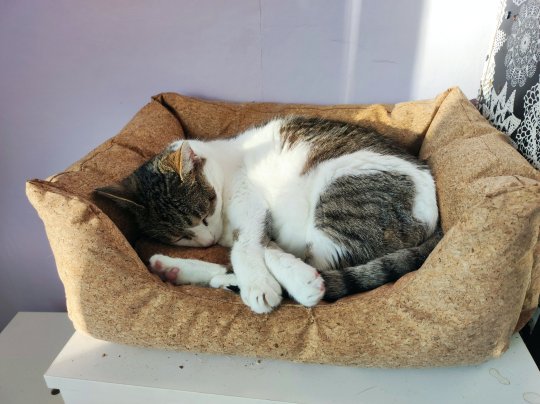
13. how tall are you?
153cm, barely 5 feet by technicality
14. favorite subject in school?
i don't think i enjoyed subjects so much as endured them
15. dream job
guy who makes the little miniature cities for ultraman to fight in
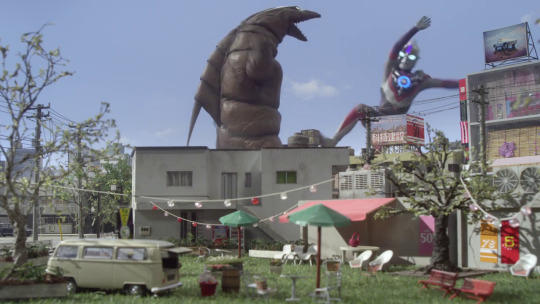
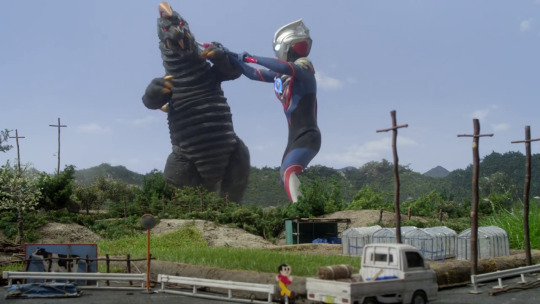

tagging! @skajador @stickers-on-a-laptop @decadentmousse @doomednarrative @snapple-man @sastheforestspirit @himbonotes @rosemirmir @tiny-tokunaga @offhandway
@hyenatron @heated-drama-between-men @tokutony @sunlightfeeling @denebsapphic
12 notes
·
View notes
Text
Che bèeèello / Adotta una pecora! @ Torino
Alcune fotografie del gigantesco e colorato gregge, formato dalle circa 800 pecore della #callforartists indetta da Imperfect comunicazione, che ha tappezzato le pareti dell’Area Educational della GAM Torino da settembre fino alla scorsa domenica…

View On WordPress
#Asta#Black (Metal) Sheep#Chebèeèello#eventi#exhibition#GAM Torino#Imperfect#Mosaico Refugees#mostre#pecora#Torino
0 notes
Text
@lacunammmm asked me to make this so i'll explain what was good, what was bad, and overall how mha ended up becoming so awful.
The GOOD: i LOVVVEEE the themes of determination, discrimination, and friendship that izuku learns over the series. Mha also USED to have some pretty good themes of abuse/abuse recovery until a certsin point. And finally the arcs were Exciting! Tense, action packed, and outright METAL up until the lame gentle fight and izuku becoming op for no reason.
The BAD: The fanservice, sexism, bakugo ends up taking over the manga for no reason, enji gets redeemed for no reason, izuku gets all 8 ofa quirks with no warning for no reason, and finally the war arc happens for no reason.
And the WORST part was that it came after the banger villain academia arc. A tale of oppression, mental trauma, and how to cope with negative emotions to better yourself spends the entire arc getting you to root for the "bad guys" just for them to be punished in the next one.
War arc is cool up until the point they kill twice THEN hawks gets nothing for doing so THEN izuku goes rogue JUST because GRAN TORINO OF ALL PEOPLE died THEN he hears nagant tell him that heroes payed her to kill people for no reason and he legit has no reaction other than "heroes are good so that's good even if it's bad" THEN izuku proceeds to hypocritically sell out aoyama to be tied up like an animal even tho HE WOULD HAVE BEEN KILLED if he didn't tell AFO about their plans and he's JUST a kid!!!
That's not even counting that they killed magne--a lady i wanted to see more of--just so overhaul could live and possibly be redeemed as foreshadowed in the nagant arc. They turned my other fav eri into a plot device that will also forgive her abuser. And worst of all they rrewrote the todoroki abuse so enji can be redeemed and dabi can look like an unreasonable "maniac" that needs to be killed or whatever bs hero society wants for thr villains--who they make/rely on to look good lol
#Mha critical#Bnha critical#Anti mha#Anti bnha#Txt#Hope u like i ain't even into the series anymore i just hope the league kills everybody lol#Also feel free to add stuff u hate in the replies and whatnot if you wanna!
53 notes
·
View notes
Text
◈ TAG NINE PEOPLE YOU’D LIKE TO KNOW BETTER!

favourite colour(s): black, purple, red
favourite flavour(s): savory and sugary
favourite genre(s): thriller, horror, supernatural, fantasy, rom com
favourite music: gothic, gothic industrial, heavy metal, black metal
favourite movie(s): Spoiler Alert, The Dark Knight, American Sniper, Gran Torino, Barbie
favourite series: Big Bang Theory, Young Sheldon, Sopranos,
last song: The Wake - Nazerene
last series: Trying to watch Friends but it's really hard and depressing now.
last movie: Elf
currently reading: The Dead Zone
currently watching: Uh nothing. I'm filling this out
currently working on: drafts.
tagging: @chaoticjoke, @qu-tipie, @fcllederage, @royaltyearned, @bitofthisandthat, @merveiilles, @amillixnvoices, @k4ndall, @americanedpsycho, and whoever wants to do this!
4 notes
·
View notes
